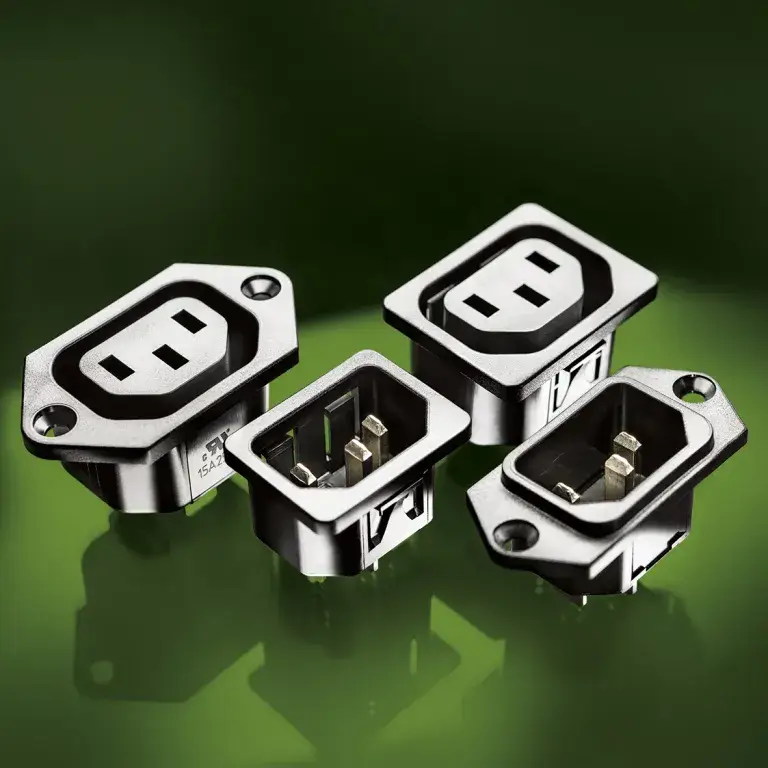
Schurter’s sustainability initiatives include a new Green Line collection of bio-based components. This includes several of the company’s existing product series – the 6100-3, 6100-4, 6102-3, 6102-5, 6600-3 and 6600-4 appliance connectors, which are also now made with bio-based plastics. The new line is part of Schurter’s efforts to reduce its carbon footprint by 50% by 2035.
“Our goal is to eventually offer only sustainable Green Line products, but for now, we use a dual-sourcing strategy and will continuously expand our Green Line offerings,” said Marcel Mühlemann, Schurter’s product manager.
The bio-based polymers used in the Green Line products are developed from renewable materials to significantly reduce CO2 emissions compared to fossil-based plastics. Bio-based plastics often have a lower density than fossil plastics, resulting in lower material consumption, according to Schurter.
Key requirements for the development of the Green Line include maintaining CO2 neutral raw material over the whole life cycle with end-of-life recyclability and significant CO2 savings. In addition, the raw material must not compete with food production and must have equal or better technical characteristics.
One of those materials is Ricinus, a castor bean plant. It is ideal for sustainability as it grows in dry areas; it is not suitable for agriculture, and it does not require pesticides or artificial irrigation to grow, Mühlemann said.
It is not edible for humans, so it does not compete as a food crop, he said.
“Our sustainable sourcing practices aim to minimize the use of fossil feedstock and instead transition to bio-based high-performance polyamide sourcing solutions with the lowest carbon footprint,” Mühlemann said.
“During the process, we invited a third-party company to evaluate the products’ entire life cycle from raw material to production, packaging, delivery and finally the disposal and found we could achieve a CO2 reduction of up to 68% per product,” he said. “While there are other interesting alternatives to fossil materials, we carefully selected this organic material. It is important to clarify, however, that you must analyze the whole lifecycle from origin [how the product is produced, water consumption, pesticides] up to the recycling, to determine if the material is truly sustainable.”
Mühlemann also explained that the company, when developing the Green Line, wanted to source a material that was at least equal to or better in technical characteristics compared to the fossil material. In fact, they found bio-based materials that outperform fossil-based materials in some cases, such as in the strength of the material to meet certain testing requirements. Other environmentally-friendly materials are being sought including lead-free metal alloys.
The Green Line is “moderately priced,” Schurter said. Pricing starts at $0.98 each in quantities of 500 pieces.
Schurter began integrating environmental protection principles into their processes as early as 1990. It was one of the first companies in Switzerland to become ISO 14001-certified in 1996.


